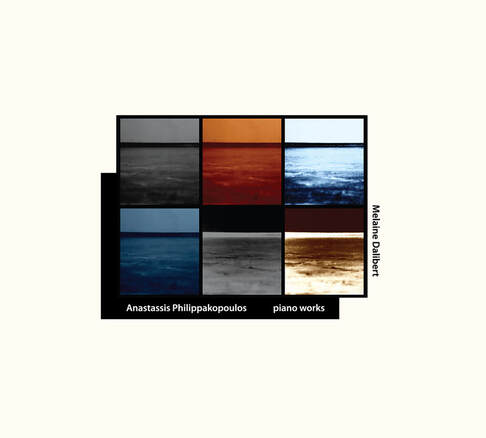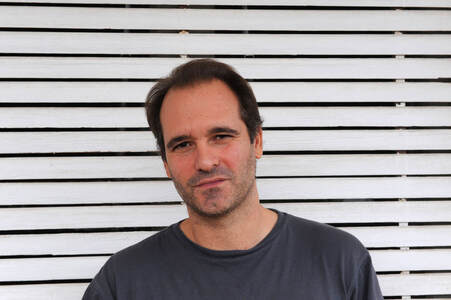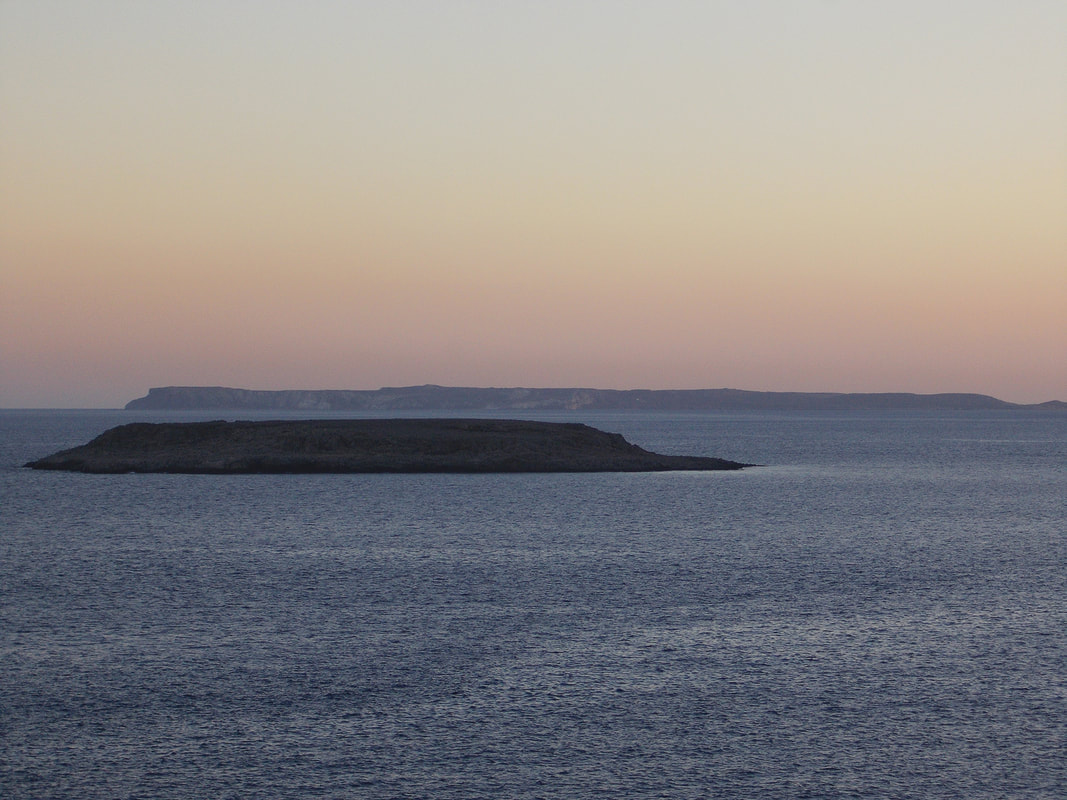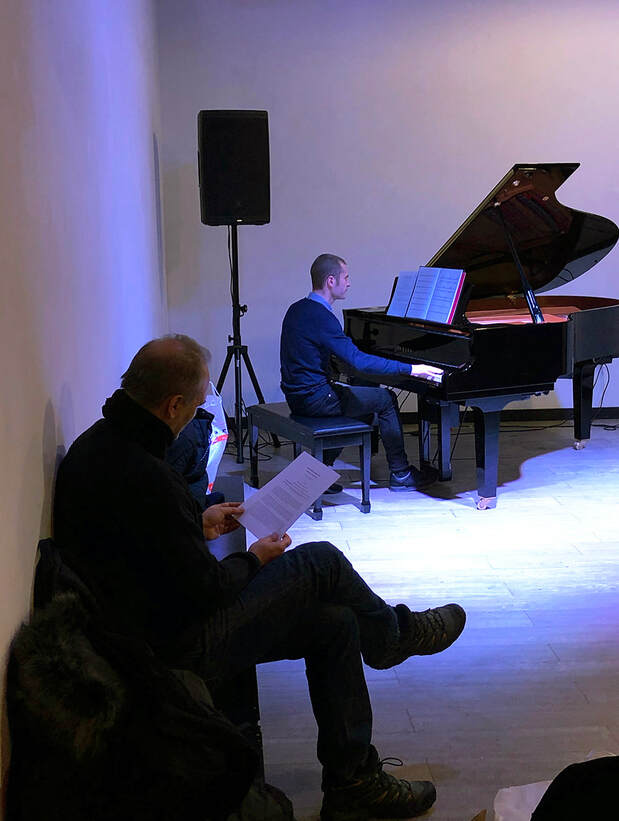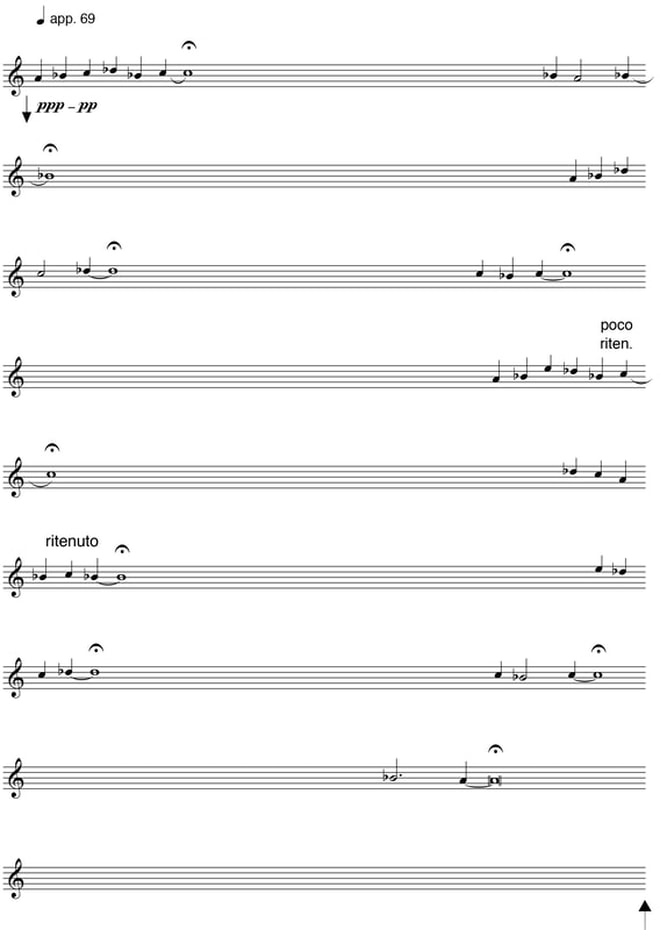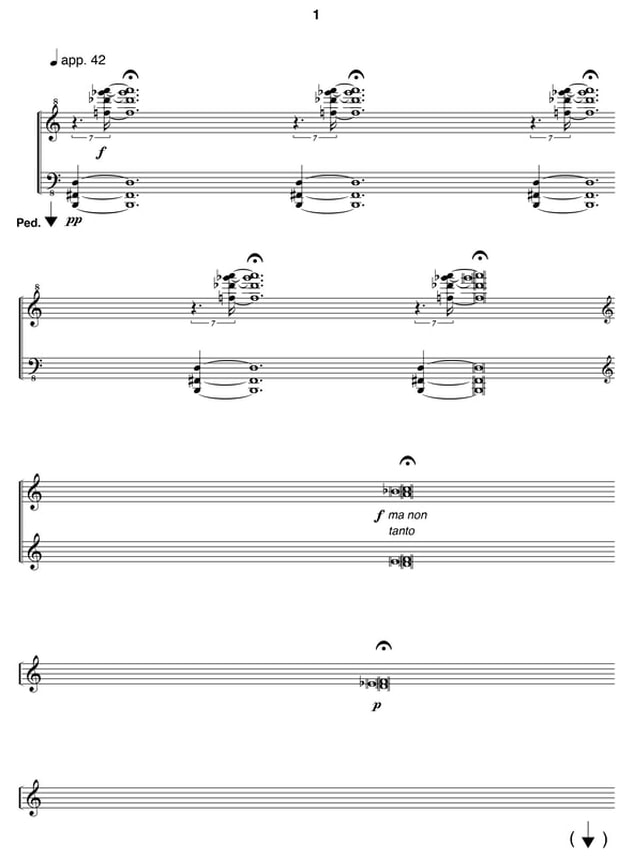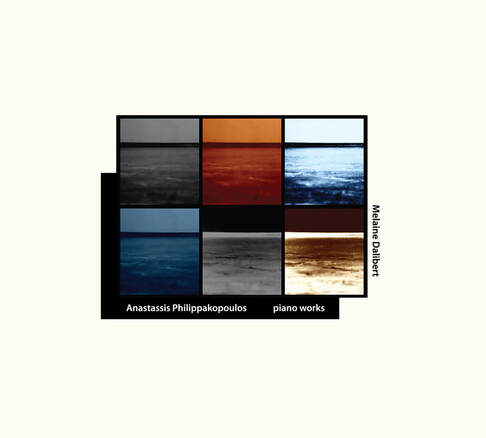|
Q&A with Anastassis Philippakopoulos
about 'piano works' |
|
"A melody is like walking, going from one place to another, without carrying a heavy bag.
Just the necessary things, a few tones are enough to make the walk..." |
|
YZ (Yuko Zama): How did you discover your current style of composition which you feel most comfortable with, using a minimal series of sparse tones with a very slow, subtle tonal development? In other words, was there any trigger or catalyst that awakened you to discover this style of composition?
AP (Anastassis Philippakopoulos): During my composition studies in Berlin, I discovered Morton Feldman’s late piano music which deeply affected me. Consequently, I wrote three long piano pieces. When I finished my studies back in 1994, I was very tired from all the academic work I had done there, and also I was feeling my music was at a certain distance from the musical style that was generally being cultivated in the school. I was thinking that maybe I will abandon composition. During this period, I discovered poetry, modern Greek poets but also the Japanese haiku. What attracted me in poetry was how things can be said in a direct, concise and subtle way, carrying an emotional depth which I couldn’t feel in post-war modernism in western music. Gradually, when I was back in Athens, I tried again to write piano pieces and it occurred that these pieces were relatively small, with few tones moving at a slow tempo. Maybe the fact that I was away from the austere and competitive environment of a music university led me to find ways to be more intuitive and subjective in my music. YZ: What were your major influences in your composition (musically, personally, philosophically, religiously, socially, or anything)? Your favorite composers that gave you profound influences or an impact both in your life and music? AP: When I finished my music studies, I went back to Greece and traveled a lot. For the first time I discovered the beauty of the natural world. I encountered the thought that the “Western ego” is maybe a fallacy, maybe the idea of separateness that is so powerful in our civilization is an obstacle for a deeper understanding of life. I developed an interest for certain ancient Greek philosophical schools, pre-Socratic philosophy but also neo-Platonism. Later I also found interest in eastern Christian and Indian mystical texts. But I would like to say that my knowledge of all these territories is inadequate. There are many composers which exercised a deep influence on me at different times of my life. During adolescence it was Mozart, Beethoven, and Bartok. During my early twenties in Berlin I discovered Bruckner, Webern and Feldman. Later I learned much from Antoine Beuger and Jürg Frey, two of my composer friends whose music and thoughts I love. Today, I listen again to Haydn, Schubert and Schumann. Going back in time, I also love Gregorian chant, Byzantine chant and the few examples of ancient Greek music. Classical music from India and Persia also fascinates me. YZ: This might be related to the above question, but you joined the Wandelweiser composers collective in 2003. How did that affect you in your later life and music?
AP: Joining the Wandelweiser collective was a very significant and crucial meeting in my life. I found myself in between sensitive and devoted composers who shared similar (but, of course, not identical) thoughts about music. Through intensive and inspired conversations with many of the members of the group, I felt I was not alone and I could continue composing as part of an ongoing dialogue. YZ: Your music seems to have a strong affinity with Zen aesthetics. How and when do you think it started? What particularly fascinates you about the Zen spirit? AP: When I first read Japanese haiku poems, especially the ones written by Matsuo Basho, I was affected by the serenity, the transparency and the depth they were carrying. The extremely small form was able to open a way to the vastness of the world. Are the Basho haikus objective or subjective? Do they talk about the outside world or the inside world? I think both, and this is very mysterious and beautiful. I have never been in Japan – although I would love to - and never had a Zen teacher, but maybe some of the thoughts and senses I feel have something in common with Zen aesthetics. |
|
YZ: What is the major inspiration when you compose? Any particular environment, mental sceneries, feelings, sensations, emotions, visual images like colors, brightness/darkness, etc. in your mind?
AP: I love walking. Sometimes I walk for many hours. Gradually my mind forgets all the unnecessary stressful thoughts and discovers beauty in things I would not see outside my walk. The light of the day, the slow movement of the clouds, the small trees, the ordinary and “not beautiful” houses, the neighborhoods that are considered to be dull. At this moment music starts coming to me. YZ: What do you think about Athens as your home ground as a composer? What inspires you most about the things and places of Athens? AP: I believe that for an artist it is positive to be rooted in a place, in a town. Athens is an old place, carrying layers of unconscious collective memory. I like the sunlight of Athens, the proximity to the sea and the mixture between ancient ruins and modern buildings. |
|
YZ: I heard that you take several months to a year to complete one short piece of composition. What do you think you can gain (benefit) from such a long-term process of composition (which otherwise may not be attainable)?
AP: In my opinion, when I work at a piece with only 20 or 30 tones for many months, when I sing the same melody with small variations for many times each day, I attain gradually a strong sense of connectedness between the tones. This connectedness can be subjective (emotional) but can also have certain “objective” formal characteristics. The form of each piece emerges gradually through the months. What also emerges gradually is the relation of the piece to intimate senses and emotions. Melaine Dalibert performing Anastassis Philippakopoulos '2017' at Daniel Goode's Loft, NYC (2/14/2020)
YZ: How do you feel about Melaine Dalibert’s pianism? What particularly do you like about his piano and interpretation?
AP: First of all, I think Melaine is a wonderful composer. His music has a human warmth and a clarity of thought. He has found a personal way to write minimalistic music which sounds fresh and mature at the same time. With his pianism Melaine gives my music lucidity, balanced expression, and the depth of the classically accomplished performer. YZ: Besides the piano pieces, what kind of instruments are you attracted to compose for?
AP: I love clarinet, bass clarinet, flute, and bass flute. I have been working with monophonic melodies since many years ago and I have written pieces which I call “songs” for the above-mentioned instruments. Some years ago, I wrote three “songs” for string orchestra. YZ: Do you think your style of composition has been changing or shifting or evolving in some direction in the last several years? AP: I cannot answer this question properly because I don’t know how my music will sound tomorrow and I also don’t know if I will compose tomorrow. Maybe what gradually changes is the way I communicate with the tones of the melody. I care more about the coherence and the relation between them. Monophonic melodies make me feel a kind of freedom. A melody is like walking, going from one place to another, without carrying a heavy bag. Just the necessary things, a few tones are enough to make the walk... (Interview conducted by Yuko Zama, December 2019 - January 2020) |
|
|
(Anastassis Philippakopoulos' music is published by Edition Wandelweiser.)
|
Melaine Dalibert - Anastassis Philippakopoulos: piano works (elsewhere 010) is now available as a CD here and a digital album (16-bit AIFF or 24-bit HD FLAC) on this label's site and Bandcamp.
|
